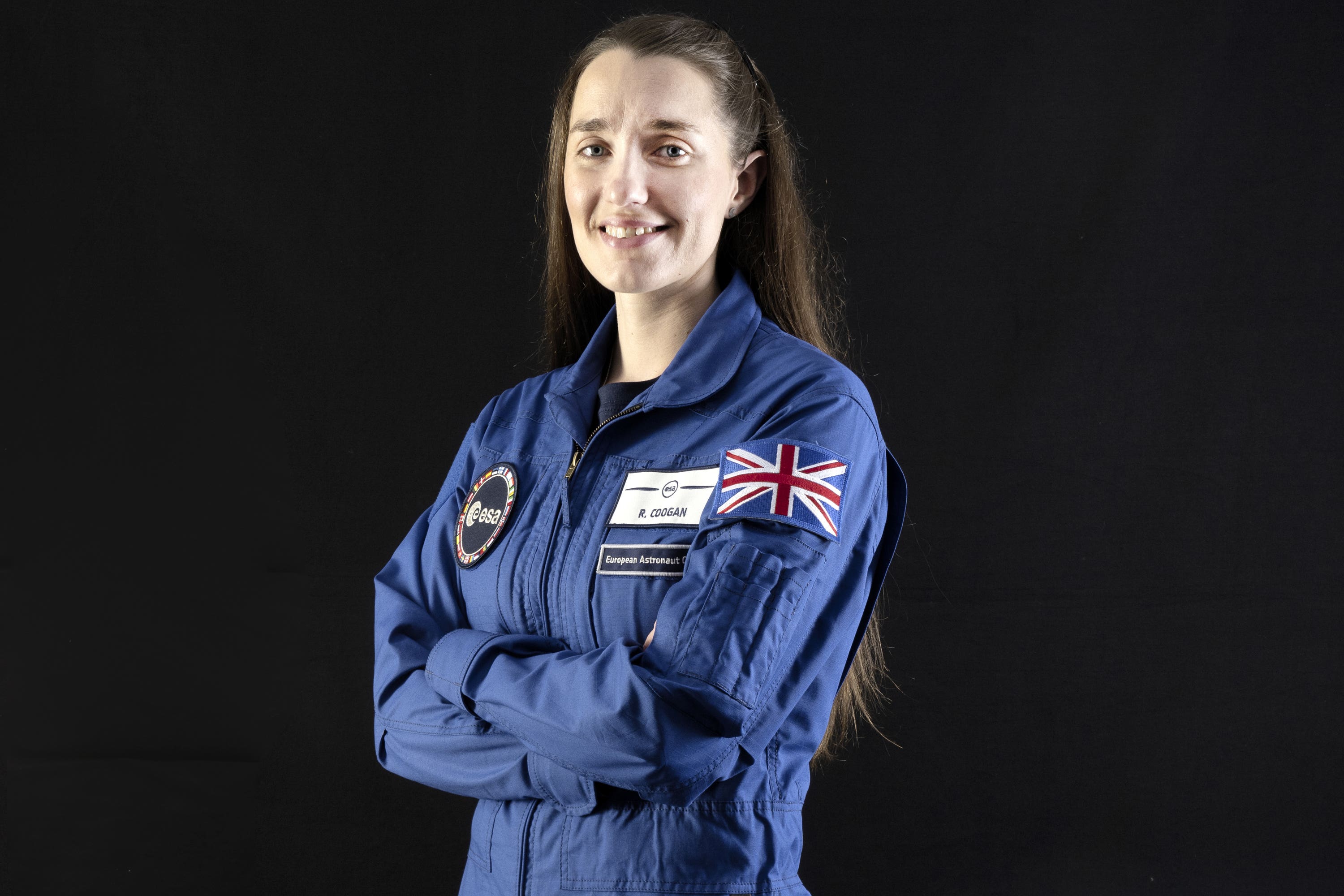Space science is ‘directly relevant’ to life on Earth, UK astronaut says
European Space Agency astronaut Rosemary Coogan has just started a new phase in her training, which will have her spend six months at Nasa.

Your support helps us to tell the story
From reproductive rights to climate change to Big Tech, The Independent is on the ground when the story is developing. Whether it's investigating the financials of Elon Musk's pro-Trump PAC or producing our latest documentary, 'The A Word', which shines a light on the American women fighting for reproductive rights, we know how important it is to parse out the facts from the messaging.
At such a critical moment in US history, we need reporters on the ground. Your donation allows us to keep sending journalists to speak to both sides of the story.
The Independent is trusted by Americans across the entire political spectrum. And unlike many other quality news outlets, we choose not to lock Americans out of our reporting and analysis with paywalls. We believe quality journalism should be available to everyone, paid for by those who can afford it.
Your support makes all the difference.Experiments conducted in space are “directly relevant” to people’s day-to-day lives on Earth, the UK’s newest astronaut has said.
European Space Agency astronaut Rosemary Coogan has just started a new phase in her training, which will have her spend six months at Nasa.
The training will prepare Ms Coogan for space walks – also known as extra vehicular activity – and will include learning about the parts of the International Space Station (ISS), how to repair it, and how to operate in a spacesuit.
One of the areas I'm particularly interested in is the human science, or the biological sciences side of things
Ms Coogan has not yet been assigned a mission, but the aim is for her to visit the ISS by 2030.
One of the things she is looking forward to is taking part in the science that happens on board the station.
Ms Coogan told the PA news agency: “An astronaut will, on average, get involved with hundreds of different experiments.
“One of the areas I’m particularly interested in is the human science, or the biological sciences side of things.
“Having an astronaut going into space, of course we’re the hands and eyes in space, but also we have our bodies in microgravity, and that’s a great test bed for looking into lots of medical-based research.”
Ms Coogan explained that one of the things to look at is how microgravity affects bone and muscle loss in space, something which is important to understand because of the ageing population on Earth.
She added: “There’s a lot of medical research as well, which I find really interesting. It has this kind of basic basis in physics.
“So the material science, the crystal growth of proteins, is much better in microgravity, and you can grow these really big, clear crystals to understand what’s causing a certain disease, and therefore how to make a medicine that will connect with that protein, and tackle that and bring all that information back.”
It's completely directly relevant to our day-to-day lives, and I think that is sometimes lost
The astronaut said that “exploration and inspiration” is a huge part of what space travel is about, as well as seeing “where technology can take us”, but that experiments in space can help tackle issues on Earth.
She continued: “It (technology) can take us off the Earth, to explore our surroundings, to put us in this bigger picture of where we came from – and I do think that’s really important – but I think we look at the International Space Station that really is a laboratory, it’s science.
“And that science is not obscure.
“It’s things that people on Earth want to know about, and the fact that you can do it in space is giving those answers.
“It’s completely directly relevant to our day-to-day lives, and I think that is sometimes lost.”
Two of Ms Coogan’s astronaut classmates, France’s Sophie Adenot and Belgium’s Raphael Liegeois, will embark on their maiden spaceflights in 2026.
They are the first of the five astronauts from the European Space Agency’s class of 2022 to be assigned long-duration missions to the space station.
Ms Adenot is scheduled to fly first, followed by Mr Liegeois, the space agency said.
Ms Coogan is among the others – Spain’s Pablo Alvarez Fernandez and Switzerland’s Marco Sieber – waiting for spaceflight assignments.
The European Space Agency has said it intends all five new astronauts to embark on missions to the space station by 2030.
Two other astronauts are also gearing up for the next stage of their training, which will include spacewalk simulation and survival exercises.
Meganne Christian and John McFall will begin their two-month training programme at the European Space Agency’s European Astronaut Centre in Cologne, Germany, in January.
The training will equip the members of the Astronaut Reserve with the skills needed to support Europe’s future space exploration and scientific research.
Former Paralympian Mr McFall is part of a feasibility study to see if he can fly as a disabled astronaut, while Ms Christian is a reserve astronaut who could join the programme if someone else drops out.